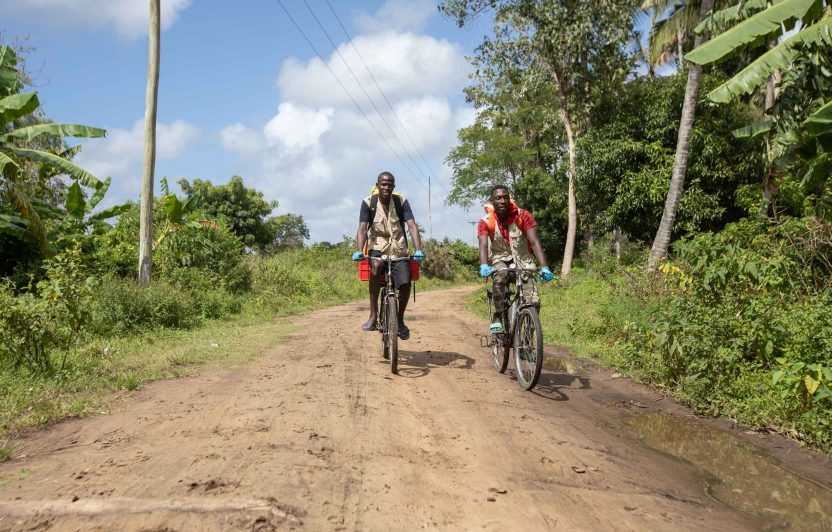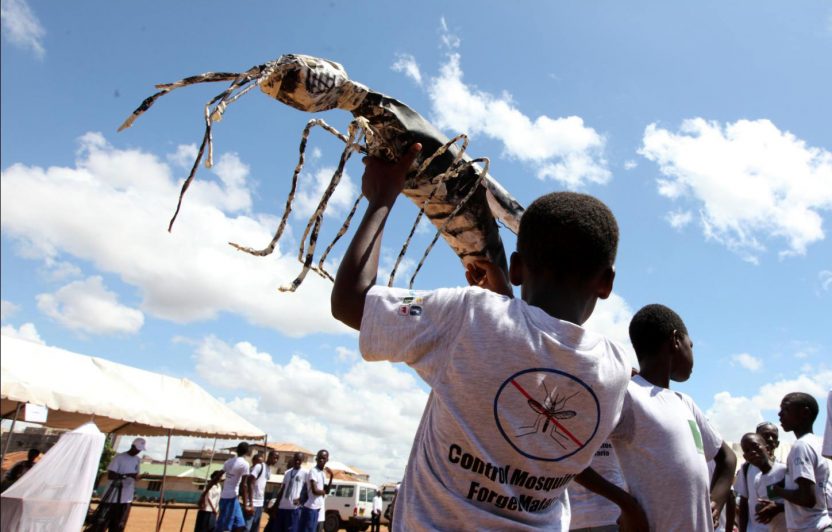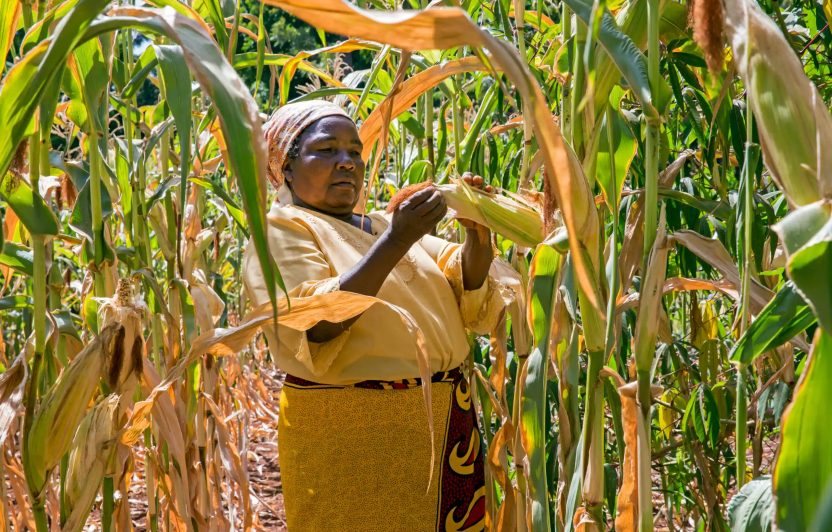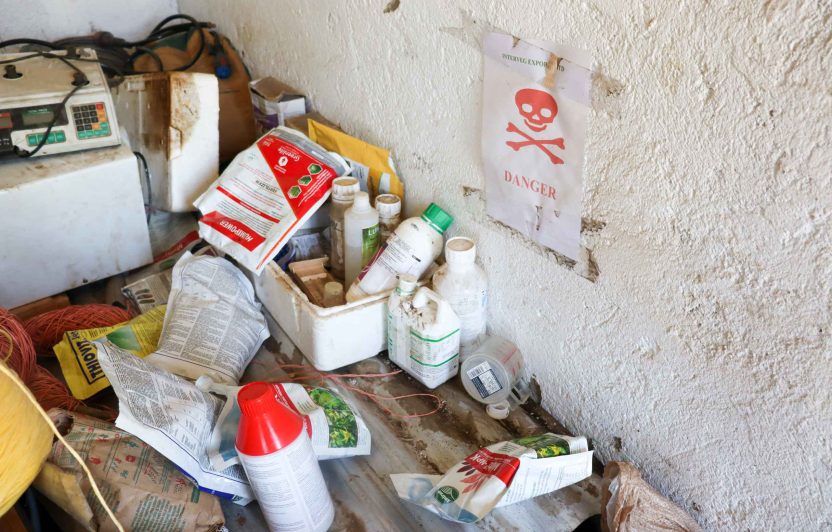The fight against malaria has made great advances in recent years. Since the turn of the millennium, global deaths from malaria have declined by 60 per cent. But the disease, transmitted by Anopheles mosquitoes, is still one of the deadliest infectious diseases around. Increasing mosquito resistance is pushing existing measures to their limits; to further reduce malaria, new methods are needed.
Blocking mosquitoes from entering
One such method is “House-Eave Screening”. Here, the gap between the wall and the eaves of the roof, which can be up to 10 cm wide, is sealed with nets. This prevents mosquitoes, which prefer to attack at night, from entering houses and protects inhabitants from their dangerous bites. The measure was implemented by members of the local association Mosquito Control Nyabondo (MOCON) in Nyabondo, Kenya, together with scientists from icipe, the International Centre of Insect Physiology and Ecology
in Nairobi.
Analysis of the icipe data shows: malaria rates decreased significantly in sealed houses. Compared to control houses without nets on the eaves, malaria risk was reduced by almost 80 per cent. The study was recently published in the Malaria Journal.

One method – many advantages
Feedback from residents was also consistently positive. It is true that screening eaves is more expensive than other malaria prevention measures like bed nets. However, most residents were willing to spend a little more money to improve their own homes while protecting themselves from other pests’ bites at the same time. The sealing method has the advantage that it does not require synthetic insecticides – and it has the potential to generate local added value. Project leader Prof. Clifford Mutero from icipe reports that the mosquito scouts from MOCON are planning to offer to seal other villagers’ houses by hand as a paid service.

Insecticides locked away in the poison cabinet
Another advantage over the widely used bed nets is that eave screening protects all residents of a household, not just those who sleep under the limited nets available. However, Prof. Mutero warns, “In no way is eave screening intended to replace the very effective bed nets. We tell people very clearly that everyone in the house should still sleep under nets.” Eave screening is an additional barrier, another measure in the Integrated Vector Management (IVM) toolbox. The intention behind it is to get malaria under control by combining locally adapted methods.
To overcome the problem of resistance, Biovision is also working to ensure that malaria control with synthetic insecticides is supplemented with alternative methods. In Malindi, Kenya, for example, this idea was met with open ears. During our project reporter Peter Lüthi’s visit, Achmed Abdalla from the local health office showed where he thought the synthetic insecticide he had received from the government belonged: locked away in the poison cabinet. He had put it there to prevent it being sprayed in households.





